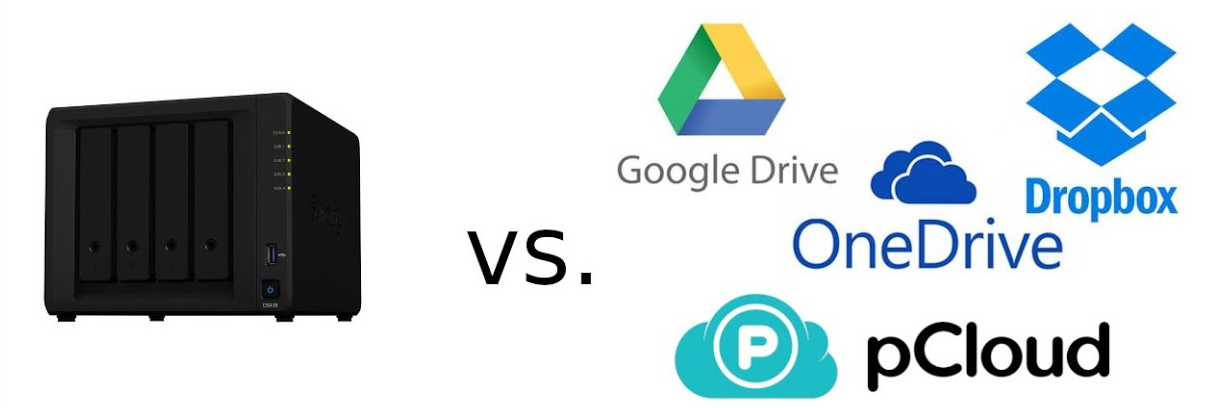
NAS vs. Cloud Storage: Which is Right for You?
With the increasing demand for data storage solutions, deciding between Network Attached Storage (NAS) and cloud storage has become a common dilemma. Both options offer unique benefits and cater to different use cases. This guide breaks down their key differences, advantages, and disadvantages to help you choose the best fit for your needs.
Key Differences: NAS vs. Cloud Storage
| Feature | NAS | Cloud Storage |
|---|---|---|
| Location | Local device in your home or office | Remote servers managed by third-party providers |
| Cost | One-time hardware cost; minimal recurring expenses | Subscription-based with ongoing fees |
| Access | Accessible via local network and remotely (with setup) | Accessible from anywhere with an internet connection |
| Privacy | Data stays local, offering greater control | Data stored on third-party servers |
| Scalability | Expandable with additional hardware | Virtually unlimited, scales with higher fees |
| Data Redundancy | Configurable via RAID for local backups | Managed by providers, varying by plan |
| Setup Complexity | Requires manual setup and maintenance | Ready-to-use with minimal configuration |
Advantages and Disadvantages of NAS
Advantages of NAS
-
Data Privacy and Control:
NAS devices keep your data within your premises, giving you full control. -
Cost Efficiency:
After the initial hardware investment, ongoing costs are minimal compared to cloud subscriptions. -
Customizability:
Ideal for specific use cases like media streaming, file sharing, or creating personal backups.
Disadvantages of NAS
-
Technical Setup:
Requires some technical know-how for installation and management. -
Limited Scalability:
Expanding storage requires purchasing additional hardware.
Advantages and Disadvantages of Cloud Storage
Advantages of Cloud Storage
-
Ease of Use:
Simple and user-friendly with minimal setup requirements. -
Anywhere Access:
Provides seamless access to data from any device with an internet connection. -
Unlimited Scalability:
Storage can grow as needed, with higher-tier plans available for larger capacities.
Disadvantages of Cloud Storage
-
Recurring Costs:
Subscription fees accumulate over time, especially for large storage needs. -
Privacy Concerns:
Storing data on third-party servers introduces potential security and privacy risks. -
Internet Dependency:
A stable internet connection is essential for accessing data.
How to Choose Between NAS and Cloud Storage
Your decision depends on your priorities and use case. The table below can help guide your choice:
| Criteria | NAS | Cloud Storage |
|---|---|---|
| Privacy | You prioritize local data storage and complete control. | You’re comfortable with third-party-managed servers. |
| Cost | You want a cost-effective solution with minimal ongoing fees. | You’re okay with recurring costs for convenience. |
| Access | You’re willing to configure remote access for local storage. | You need seamless global access with no setup effort. |
| Use Case | Ideal for media streaming, file sharing, or backups. | Best for general storage with quick setup and access. |
| Scalability | You’re fine with adding physical hardware for growth. | You prefer on-demand, virtually unlimited storage. |
Conclusion
Both NAS and cloud storage are powerful solutions, but their suitability depends on your specific needs:
- Choose NAS if you value privacy, data control, and long-term cost savings.
- Choose Cloud Storage if convenience, scalability, and ease of use are more important.
By assessing your priorities—be it privacy, scalability, or cost—you can make an informed decision about which storage solution aligns best with your requirements.